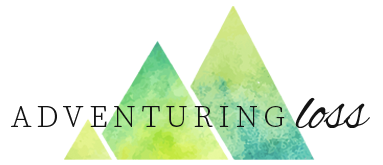
Trauma Counselling
What is trauma counselling?
Trauma Counselling is aimed at treating the full body effects of your experience(s). We help you understand how you have been affected by trauma; this may include physical, emotional, mental, spiritual, generational, social (relationships) and moral effects.
Our goal with trauma counselling is to meet you where you’re at while giving you the tools to find safety in your body, regulate your nervous system and create a deeper and more meaningful way of life.
How does trauma counselling work?
Trauma counselling sessions involve creating a safe therapeutic rapport between the client and counsellor while taking a history in relation to what has happened, developing an understanding of who you are as a person, providing psychoeducation and stabilization while developing tools that support emotional regulation.
Trauma is an event or events that have happened too much, too fast and too soon. Therefore, recovering from trauma, and trauma counselling is slower than other types of counselling.
Our trauma counsellors empower our clients to restore their aliveness and find themselves outside of their trauma.
How do you know if you have unhealed trauma?
Unprocessed trauma can manifest in many ways, such as, lack of motivation, feeling stuck or unable to move forward in life, emotional dysregulation and/or hypervigilance and countless physical ailments – just to name a few. Trauma dysregulates the central nervous system which can trigger one into fight, flight or freeze creating disconnection from one’s spiritual, emotional, mental and physical being. Start the healing journey with trauma counselling.
Who is trauma counselling for?
Many clients who have experienced trauma as children or trauma that hasn’t been acknowledged, come to counselling because they have reached a point where their quality of life is suffering. Perhaps they have experienced recurring nightmares and flashbacks, unhealthy behavioural patterns, relational challenges, avoiding places people or activities that remind them of an experience, chronic headaches and other physical ailments that are unexplained. Some clients notice emotional challenges - perhaps they are chronically angry or disconnected.
Other times, clients come to trauma counselling because a significant event has just occurred in their lives and they are looking for support in navigating the aftermath and identify healthy steps forward.
Trauma is caused by an overwhelming event or events that surpasses one’s ability to integrate emotions. Trauma can be the cause of a catastrophic event or multiple experiences in which one’s central nervous system is overwhelmed. In the words of Bessel Van Der Kolk “Trauma is not the story of something that happened back then. It’s the current imprint of pain, horror and fear living inside of people.”
What can you expect after trauma counselling sessions?
After your online trauma counselling session, you may feel exhausted. Many people are not aware that processing deep emotions is a strenuous process. You might develop insights, discover new tools or be acknowledging how much impact your loss has had on you. Treat yourself with compassion and allow yourself some time after your session to reflect, drink water and look after yourself.
Our trauma counsellors are here to support you.

